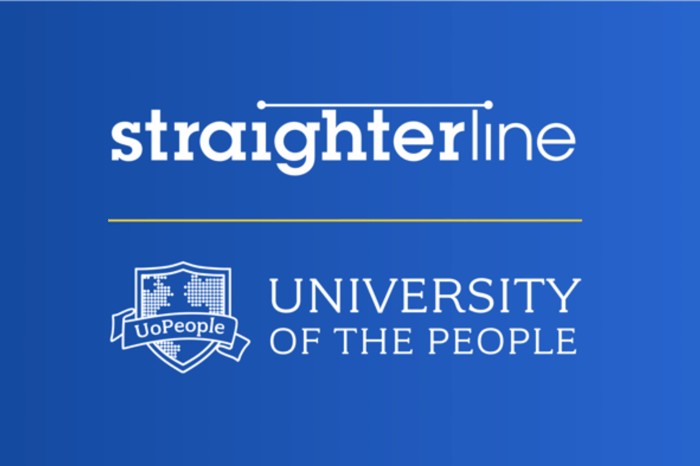New research uncovers the lasting personal, professional, and financial impacts of not completing your college degree — and what you can do about it.
Did you know that 67% of college stopouts consider their unfinished degree a personal failure? If you're among the 40 million Americans with some college experience but no degree, you're not alone in feeling the weight of that incomplete chapter in your life.
A groundbreaking new study conducted by StraighterLine in partnership with Wakefield Research surveyed 1,000 adults who left college before graduating to understand the real-world impacts of an unfinished college degree. The results reveal surprising insights about how stopping out affects everything from career prospects to mental health — and most importantly, what paths forward exist for adult learners ready to finish what they started.
The Emotional Toll: More Than Just Missing a Piece of Paper
The Shame Factor: Hidden from Employers, Friends, and Dates
Perhaps the most striking finding from the research is how deeply personal the impact of an unfinished college degree becomes over time. More than one-third of respondents have actually hidden the fact that they don't have a degree from employers, friends, and even romantic prospects.
This isn't just about professional embarrassment — it's about fundamental self-worth. When society places such high value on college completion, those without degrees often internalize feelings of inadequacy that extend far beyond the workplace.
The Stress and Anxiety Connection
The research reveals that 83% of college stopouts experience stress and anxiety specifically related to not having their college degree. This chronic stress can impact relationships, career confidence, and overall life satisfaction in ways that compound over time.
Consider Sarah, a 34-year-old marketing professional who left college in her junior year due to family financial constraints: "Every job application, every networking event, every time someone asks about my background—there's this moment of shame. It's exhausting to carry that around."
The Professional Price: Career Limitations and Lost Opportunities
The $40,000+ Annual Impact
Beyond emotional costs, the financial implications are staggering. More than half of survey respondents estimate they've lost over $40,000 in annual earnings each year due to not completing their college degree.
To put this in perspective:
Over a 20-year career, this represents $800,000+ in lost lifetime earnings
The gap often widens over time as college degree-holders advance to senior positions
Many stopouts hit career "ceilings" that require degree completion to break through
The Job That Got Away
Perhaps even more telling: 73% of respondents believe not finishing their degree caused them to lose out on a job they really wanted. This isn't about entry-level positions — these are often mid-career professionals who find themselves passed over for promotions or unable to even apply for positions that match their experience and skills.
The Industries Where Degrees Matter Most
While college degree requirements vary by field, certain industries show particularly rigid degree requirements that impact stopout career mobility:
Nursing, medical technology, and healthcare administration roles
Often require specific accredited degree programs
Limited alternative pathways to demonstrate competency
Teaching positions (K-12 and higher education)
Corporate training and development roles
Educational administration and policy positions
Management and executive positions
Financial planning and advisory roles
Regulatory compliance positions
While skills often matter more than degrees, many companies still filter applicants by education
Government and defense contractor positions with strict requirements
Management and team leadership roles
What's Really Stopping People from Going Back?
The Cost Barrier Dominates
The research confirms what many suspected: 62% of stopouts cite cost as the primary factor preventing them from finishing their college degree. After already investing thousands in their initial college experience, the prospect of taking on additional debt feels overwhelming.
However, the study also revealed a crucial insight: 78% of respondents would return to school if offered free college-level credit hours. This suggests that while cost is the primary barrier, the desire to complete their education remains strong.
Time and Life Complexity
Beyond cost, adult learners face unique challenges:
Work schedules that don't align with traditional class times
Family responsibilities including childcare and eldercare
Geographic limitations in areas without nearby colleges
Academic confidence issues after years away from formal education
The Path Forward: How Adult Learners Are Successfully Completing Their Degrees
The Rise of Flexible, Affordable Options
Traditional higher education doesn’t always fit the complex lives of working adults. However, innovative approaches are making degree completion more accessible:
Online and Hybrid Programs
Study during evenings, weekends, or whenever your schedule allows
No commuting time or parking fees
Access to courses regardless of geographic location
Competency-Based Education
Earn credit for skills and knowledge you've gained through work experience
Move quickly through material you already understand
Focus study time on new concepts
Affordable Credit Options
Online courses for less than community college prices
Subscription-based learning models
Transfer-friendly credits that maximize your previous investment
Success Stories: Real People, Real Results
Johnnie’s Story — From paraprofessional to biology teacher: A determined working mother, Johnnie needed an affordable and flexible way to complete her prerequisites before starting her teaching degree. She shared, “I couldn’t have gone back to school without StraighterLine — it gave me the affordable, online courses I needed to keep moving toward my degree.”
Autumn’s Journey — Raising kids, and raising the bar: A working mother of four, Autumn needed a flexible and affordable way to complete college courses without disrupting her busy life. She said, “StraighterLine made it possible for me to keep working while earning the credits I needed — all at a price I could afford.”
Making Your Comeback: A Step-by-Step Guide
Step 1: Audit Your Academic Foundation
Request transcripts from all previous institutions
Identify how many credits you already have
Research college degree programs that align with your career goals
Calculate exactly how many credits you need to graduate
Step 2: Explore Credit-Maximizing Options
Prior Learning Assessment (PLA): Earn credit for work experience
CLEP and DSST Exams: Test out of courses you already understand
Affordable Online Courses: Complete remaining requirements cost-effectively
Micro-credentials and Certificates: Build skills while working toward your degree
Step 3: Choose the Right Program Structure
Accelerated Programs: Intensive courses for motivated learners
Part-Time Options: Slower pace for busy schedules
Competency-Based: Move at your own speed based on knowledge mastery
Hybrid Models: Combine online flexibility with occasional in-person elements
Step 4: Create Your Support System
Academic Advisors: Guide course selection and transfer planning
Career Services: Connect degree completion to professional goals
Study Groups and Peer Networks: Connect with other adult learners
Family Support: Communicate goals and needs with loved ones
The Economic Impact: Why This Matters Beyond Individual Success
The broader implications extend far beyond personal achievement:
Workforce Development
Employers struggle to find qualified workers in many fields
Skilled workers with college degrees earn more and contribute more in taxes
Economic mobility improves community stability and growth
Social Benefits
College graduates are more likely to vote and participate in civic life
Higher education correlates with better health outcomes and lifestyle choices
Educational achievement creates positive examples for children and communities
Innovation and Competition
A more educated workforce drives innovation and economic competitiveness
Diverse educational backgrounds bring varied perspectives to problem-solving
Lifelong learning becomes increasingly important in rapidly changing industries
Overcoming Common Obstacles: Practical Solutions
"I'm Too Old to Go Back to School"
Reality: The average age of online learners continues to rise, with many successful graduates in their 40s, 50s, and beyond. Adult learners often outperform traditional students due to motivation, life experience, and clear goals.
"I Can't Afford More Education Debt"
Reality: Many degree completion options cost less than one semester at traditional universities. Employer tuition assistance, payment plans, and affordable online options (such as StraighteLine) make education accessible without overwhelming debt.
"I Don't Have Time with Work and Family"
Reality: Modern educational technology allows learning in small time blocks. Many successful adult learners study 30-60 minutes daily during commutes, lunch breaks, or after family bedtime.
"My Credits Are Too Old to Transfer"
Reality: While some schools have time limits on credits, many accept older coursework, especially in core subjects. Academic advisors can help identify the most transfer-friendly programs.
Technology Makes the Difference: Learning in 2025
Today's educational technology removes many traditional barriers:
Mobile Learning Platforms
Study on smartphones during downtime
Download content for offline access
Progress tracking and automated reminders
Virtual Labs and Simulations
Interactive simulations for hands-on learning
24/7 access to laboratory experiences
AI-Powered Support
Personalized study recommendations
Automated tutoring and feedback
Adaptive learning that adjusts to your pace
The Ripple Effect: How Your Degree Impacts Others
Completing your degree creates positive impacts beyond your own life:
For Your Children
Children of college graduates are significantly more likely to pursue higher education
Your success demonstrates persistence and goal achievement
Educational values become part of family culture
For Your Workplace
Bring enhanced skills and knowledge to your current role
Qualify for leadership positions and mentor others
Contribute to organizational learning and development
For Your Community
Serve as an example that it's never too late to achieve goals
Increase local talent pool and economic development
Participate more fully in community leadership and civic activities
Taking Action: Your Next Steps Start Today
The research is clear: the cost of an unfinished college degree extends far beyond missed paychecks. It affects self-esteem, career trajectory, family dynamics, and community participation. But equally clear is that solutions exist for motivated adult learners ready to finish what they started.
Your immediate action plan:
Calculate your current academic standing: Request transcripts and assess remaining requirements
Research transfer-friendly programs: Look for schools that maximize your existing credits
Explore affordable options: Investigate online courses, competency-based programs, and alternative credit sources
Connect with academic advisors: Get professional guidance on the most efficient path to graduation
Set a realistic timeline: Create achievable milestones that fit your life circumstances
The Bottom Line: Your Future Self Will Thank You
The 1,000 adults surveyed for this research shared a common theme: regret about not finishing college, but also hope about future possibilities. In an era of unprecedented educational flexibility and affordability, the barriers that once seemed insurmountable are increasingly manageable.
Your degree isn't just about proving something to others — it's about unlocking your full potential, increasing your options, and completing a goal that clearly still matters to you. The question isn't whether you're capable of finishing (you are), but whether you're ready to take the first step.
Ready to explore your options? StraighterLine offers an affordable, flexible pathway back to getting your degree. Browse our self-paced, online courses to get started.
FAQs
How much does it really cost to finish my degree online?
The cost varies significantly depending on how many credits you need and which provider you choose. Based on our research, 62% of college stopouts cite cost as their main barrier, but many are surprised to learn that completing remaining credits online can cost 50-70% less than traditional universities. For example, if you need 30 credits to graduate, online options might cost $2,000-4,000 total versus $8,000-15,000 at a traditional four-year institution. Many providers also offer monthly payment plans to make costs more manageable.
Will employers really accept my degree if I finish it online?
Yes, employers cannot legally discriminate based on whether your accredited degree was earned online or in-person. What matters is that your degree comes from a regionally accredited institution. In fact, many Fortune 500 companies now offer tuition assistance specifically for online degree completion programs because they recognize the value. The key is ensuring your online program maintains the same academic standards and accreditation as traditional programs.
How long will it take me to finish my degree if I'm working full-time?
Most working adults complete their remaining credits in 12-24 months, depending on how many credits they need and their available study time. Our research shows successful adult learners typically study 30-60 minutes daily during lunch breaks, commutes, or after family time. If you need 30 credits and can complete one 3-credit course every 6-8 weeks, you could finish in about 15 months. The flexibility of online learning means you can accelerate during lighter work periods and slow down when life gets busy.
Are my old college credits still valid, even if they're from 10+ years ago?
Most core academic credits (math, English, sciences, general education) remain valid indefinitely at many institutions, especially if they're from regionally accredited schools. However, some specialized or rapidly-changing fields like technology or healthcare may have time limits on certain credits. The best approach is to request official transcripts from all previous schools and work with an academic advisor to evaluate which credits will transfer. Many students are pleasantly surprised to discover they're closer to graduation than they thought.
What if I'm not confident in my academic abilities after being away from school for so long?
This concern affects 73% of adult learners, but research consistently shows that adult students often outperform traditional college-age students due to greater motivation, life experience, and clear goals. Most online programs offer academic support including tutoring, study skills refreshers, and flexible pacing. Start with one course to rebuild confidence, choose subjects you're already familiar with from work experience, and remember that you already proved you could handle college coursework — you just need to finish what you started.
This concern affects 73% of adult learners, but research consistently shows that adult students often outperform traditional college-age students due to greater motivation, life experience, and clear goals. Most online programs offer academic support including tutoring, study skills refreshers, and flexible pacing. Start with one course to rebuild confidence, choose subjects you're already familiar with from work experience, and remember that you already proved you could handle college coursework — you just need to finish what you started.
This research was conducted by Wakefield Research in partnership with StraighterLine, surveying 1,000 U.S. adults who completed some college but did not finish a degree. The survey was conducted between June 9th and July 15th, 2025, with a margin of error of ±3.1 percentage points.












